Carry On
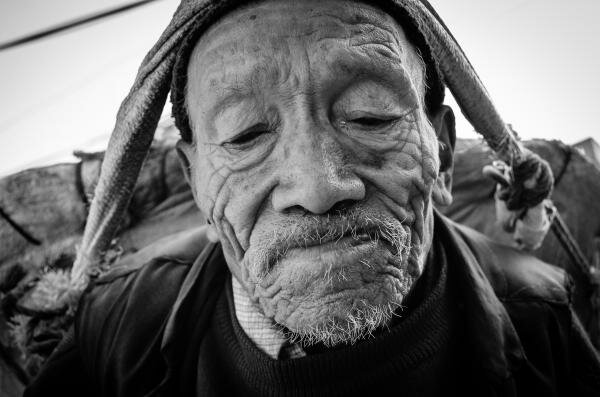
 1 of 12
1 of 12 
ImagIne a nylon rope around your forehead, a 70kg gunnysack on your back, and struggling through the narrow streets of Kathmandu, from dawn till dusk.
This is the daily routine in the life of a porter commonly known as bhariya or “bhari bokne” in Nepal.
Such porters have been observed in places like Basantapur and Kalimati of Kathmandu where they spend their days carrying furniture, sand, gravel and whatever loads they are asked to transport. With all their hard day’s work, all they get paid is Rs 50 to 100 per load, depending on the distance they trudge. Life has been a struggle for these porters who fall in the age bracket of 20 to 75 years, and they have to survive on the basis of their daily wages per loads they carry.
“It’s been 35 years since I’ve been working as a porter. My wife passed away a long time back and I’ve been living in a rented room. Sometimes I even have to skip my dinner if I haven’t made enough money that day,” shares 75-year-old Bir Bahadur Tamang who is originally from Okhaldhunga in the east.
His age has taken a toll on him as his feeble body finds it difficult to carry the burden. Although his responsibility is to take care of himself only, as he is the only one surviving one in his family, he mentions that his meager earnings are never sufficient enough for savings. But he is still determined to work not only because he has no other options but he still has hope that something better may turn out in the future. Porters usually come to the capital with a dream of a secure future from places as far as Makwanpur and Okhaldhunga. If they fail to find any customers, they are even forced to spend their days in idleness and in anticipation of porterage. To forget the pain, most porters drown their sorrows in rakshi (moonshine) and also at times when they can’t afford to eat, as this is what keeps them going. Everyday is a struggle for these porters who carry goods through the narrow lanes of the capital on their battered backs to the final destination.
Photos by Pushpa Adhikari & Text by The Week Bureau
(Left) Bir Bahadur Tamang, 75, takes a breather. Originally from Okhaldhunga, he now lives in a rented place owned by his employer. He doesn’t have to pay rent but has to manage his own food. At times, he eats just a meal a day when he is short of money.
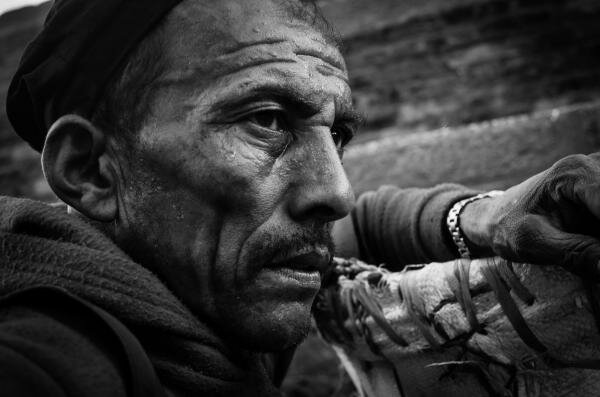
 2 of 12
2 of 12 
A 45-year-old porter who usually comes to Kathmandu from Gorkha just for a month in search of work. After the harvesting and plantation seasons are over back at his village, he comes back to the capital again. He sleeps in a shop at night.
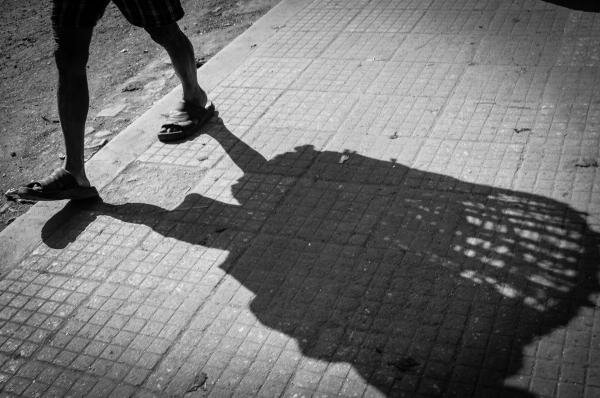
 3 of 12
3 of 12 
A porter’s shadow captured as he passes by carrying a doko (bamboo basket) on his back at Kalimati.
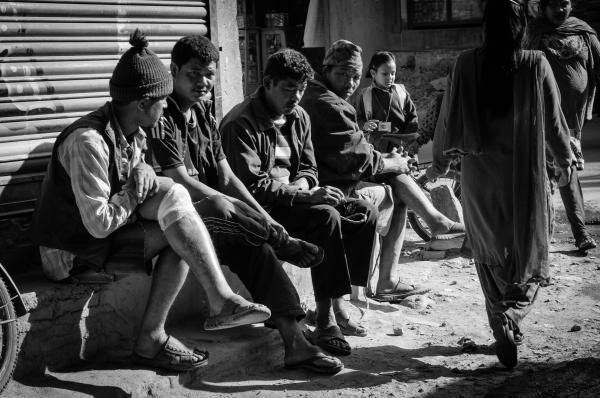
 4 of 12
4 of 12 
Some porters around the valley gather to smoke together and share news of the family and friends until it’s time to carry their next load.
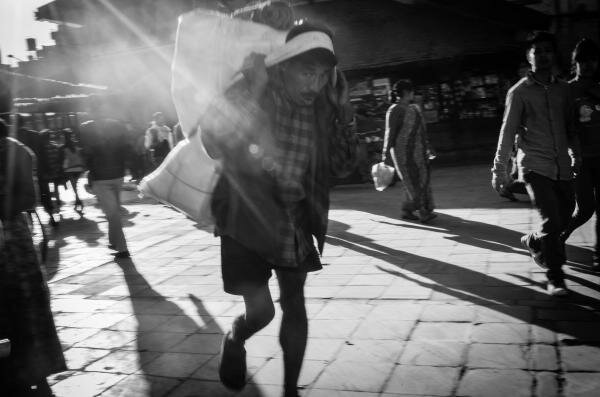
 5 of 12
5 of 12 
A porter stumbles and struggles as he carries a heavy load. A lot of porters can been seen carrying immensely heavy loads to and fro all day long.
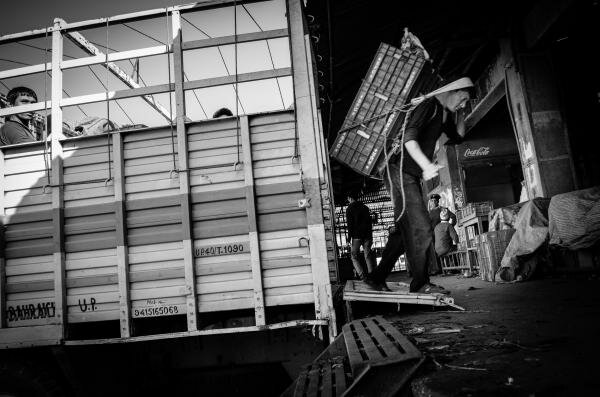
 6 of 12
6 of 12 
A porter unloads a truck carrying tomatoes. Crates after crates of tomatoes are unloaded by porters like him every single day.
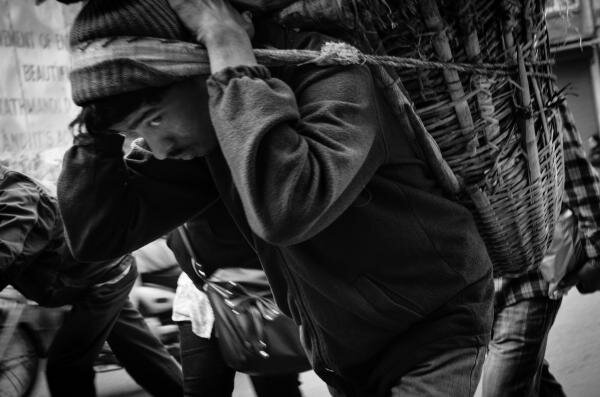
 7 of 12
7 of 12 
A porter bends to accomodate the weight on his back. It is not unusual for porters to be seen carrying extremely heavy loads that put a strain on their bodies.
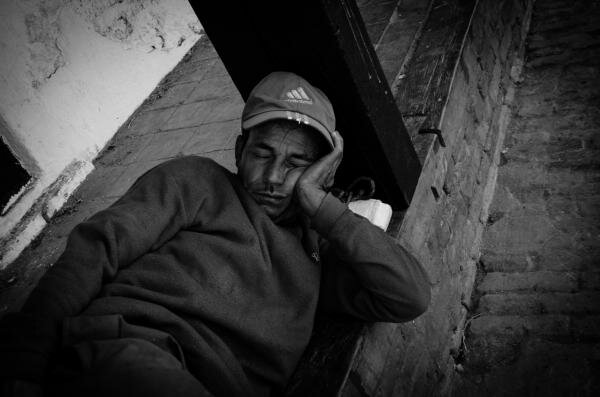
 8 of 12
8 of 12 
A porter takes a quick nap in between assignments. With so much physical exertion every single day, constant tiredness is a part of life for these men.
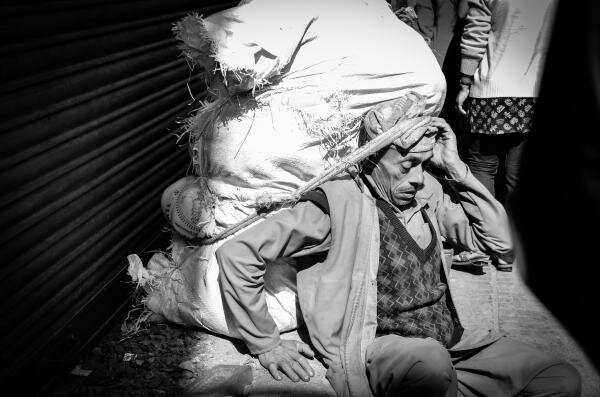
 9 of 12
9 of 12 
A porter haunches in an attempt to put the load on his back.
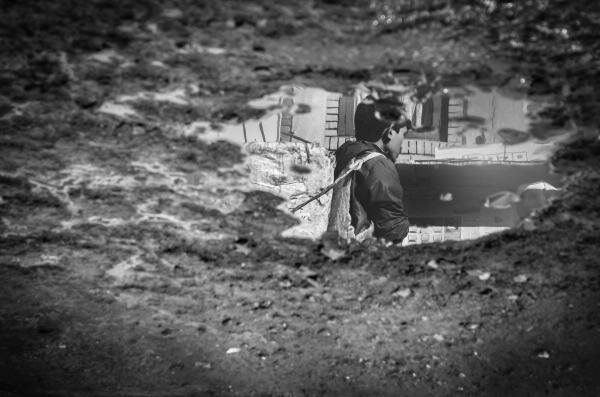
 10 of 12
10 of 12 
The reflection of a porter captured in a puddle as he heads back with an empty doko.
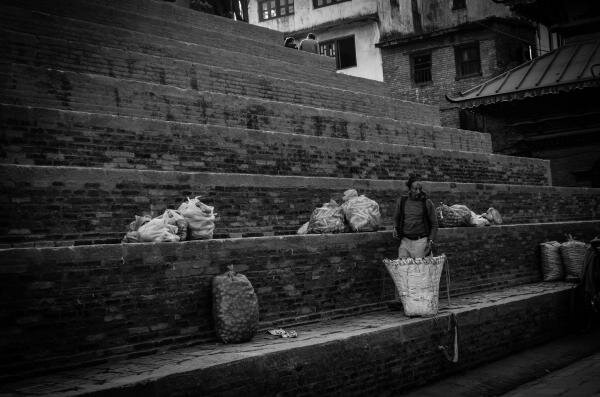
 11 of 12
11 of 12 
A porter takes a moment for himself before picking up the doko in front of him.
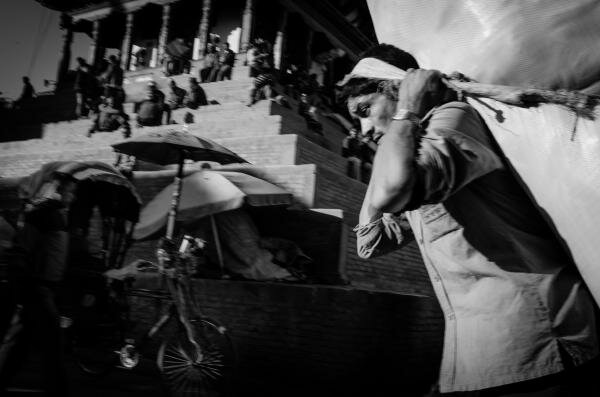
 12 of 12
12 of 12 
A porter at Basantapur looks immersed in his thoughts as he walks towards his destination. Life is difficult, to say the least, for these men whose work is physically taxing.












